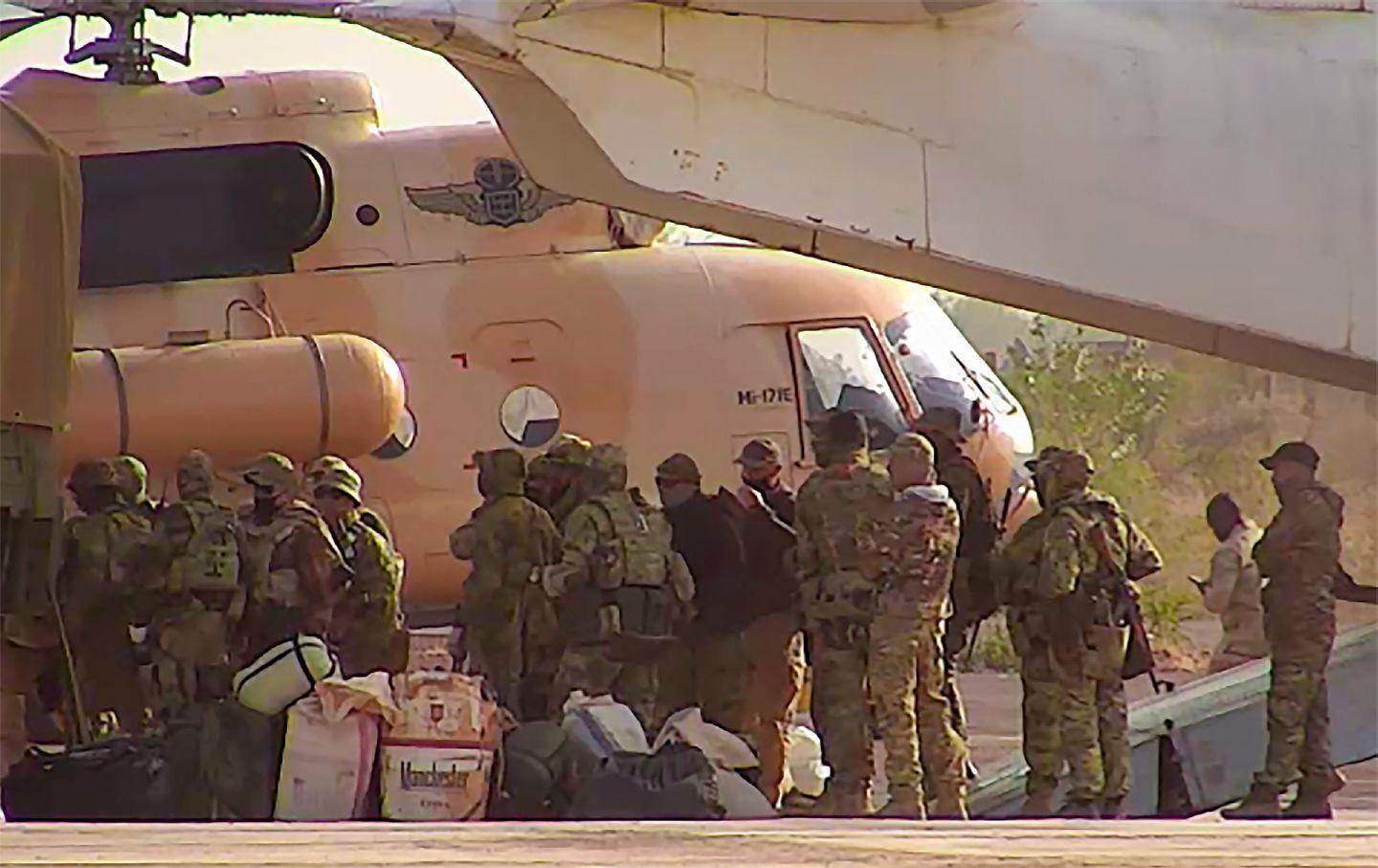NICOLAS NIARCHOS
Africa-Press – South-Sudan. Yevgeny Prigozhin’s mercenary army might have been disbanded in Russia, but in Africa—where the group props up dictators, extracts mineral wealth, and siphons off billions from legitimate business—Wagner’s siren song is far from silent.
The abortive rebellion in Russia by Yevgeny Prigozhin and his Private Military Corporation (PMC) Wagner didn’t only leave Vladimir Putin wondering about his grip on power. Across the African continent, from the steaming jungles of the Central African Republic (CAR) to the deserts of Libya, presidents and generals were left wondering, panicking, even, about what would happen to the Wagner Group. This was in large part because Prigozhin’s band of mercenaries have become an integral part of many of the continent’s fighting forces. On June 26, Russian Foreign Minister Sergei Lavrov took to the state-funded broadcaster RT to reassure African leaders that they would not lose their fighting forces. “The governments of CAR and Mali have official contacts with our leadership. At their request, several hundred soldiers are working in CAR as instructors,” Lavrov said. “That work will continue.”
But in Syria, where the group also operates, several Wagner commanders were apprehended by Russian military police. On Friday, June 30, Wagner troops also showed they were vulnerable when they were hit by drone strike in Libya. Reportedly, a Turkish-made drone popular with the Tripoli-based government had been use to hit Wagner’s al-Kharruba air base. No casualties were reported and the Tripoli government has denied involvement.
Almost no one—perhaps even Putin himself—truly yet knows what will become of the mercenary force in the wake of Prigozhin’s mutiny, or of the web of businesses that it has developed on the African continent in the wake of Prigozhin’s rebellion, but it’s clear some kind of deal has been struck. (Since the mutiny, Prigozhin has reportedly been in Russia, picking up weapons he owns and has released messages thanking supporters on Telegram.) On Monday this week, the Kremlin acknowledged that Putin and Prigozhin met in person for three hours only five days after the mutiny, and a piece in Bloomberg News suggested that the Russian government had allowed Wagner to keep some of its operations in Africa, citing two unnamed sources with knowledge of the discussions.
Among analysts, security consultants and Washington observers, the consensus is that the status quo—the Russian government’s monopoly on force—has been severely weakened. But no one believes that Wagner in Africa is going anywhere for the time being—even if some of its mercenaries have divided their loyalties. Perhaps the company will undergo something of a rebrand as Moscow seeks to consolidate its control over the company, or perhaps little will change, because, indeed, little can change.
“I think we’re going to have to wait and see,” said Pauline Bax, deputy director of the Africa program at the International Crisis Group, an NGO that monitors conflicts. “Wagner operations in Africa will continue. We don’t know in what shape or form, but generally we can assume that the Wagner operations in Africa have been very useful for the Kremlin, not just as a foreign policy tool, but also as a means of generating revenue.”
Authoritarian leaders in Africa have found that they can enjoy military, logistical, and media support from Russia for their regimes without hewing to any particular domestic political agenda. Russia asks merely for access to resources and support at international forums, like the United Nations. “They use a similar playbook as the Chinese,” a US government contractor who has worked on Russian influence in Africa told me, pointing to Beijing’s successful powerplays in countries like the Democratic Republic of the Congo. “They say, ‘We’re not going to do anything political. We’re not going to interfere in your domestic policy,’” he continued. “They just say, ‘We’ll give you money and military support, and you give us mineral rights.’” The United States, he said, is seen by African leaders to be promoting anti-corruption efforts in countries where the politically involved benefit from corruption, and social issues like LGBTQ+ rights, which rankle the continent’s socially conservative mainstream.
source:thenation
For More News And Analysis About South-Sudan Follow Africa-Press






